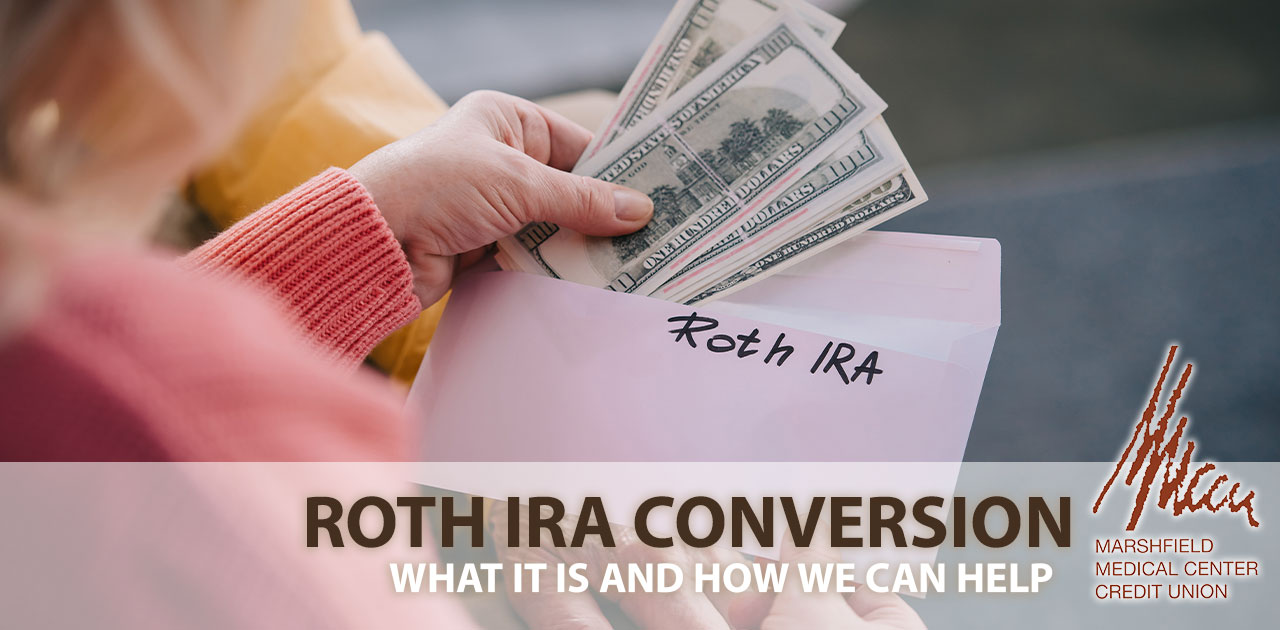Roth IRA Conversion Explained
If a tax or financial planner advises you to consider a Roth IRA Conversion, MMCCU is able to provide this service to members.
*First, work with your tax advisor or financial planner to determine if a Roth IRA Conversion makes sense for your financial situation. If it does, our team can work with you on this process.
Roth IRA conversion is a tax strategy that requires planning and long-term commitment. It involves transferring retirement funds from a Traditional IRA or 401(k) into a Roth account. This creates a taxable event, so it’s important to work with your financial advisor to know whether paying taxes now or later is more beneficial in your situation.
A Roth IRA allows for tax-free withdrawals of qualified distributions. Having tax-free withdrawals in retirement can be an advantage.
Additionally, when timed correctly, the conversion from Traditional to Roth can help lower an individual’s income bracket for retirement.
Let’s say you are in a lower income bracket this year. If you convert some of your Traditional IRA into a Roth IRA, you will pay taxes on that income now but remain at a lower tax percentage. Those taxes are then done and paid. Once in a Roth, you will not be taxed to withdraw that money.
Example*: A married couple (filing jointly) expect to have $120,000 in taxable income. They can convert up to $52,000 to a Roth IRA and still remain within the 22% marginal tax bracket for 2021 (which applies to taxable income between $81,051 to $172,750). A dollar above that $172,750 limit would put the couple into the 24% bracket, which they want to avoid.
*This material has been prepared for informational purposes only, and is not intended to provide, and should not be relied on for, tax, legal or accounting advice. You should consult your own tax, legal and accounting advisors before engaging in any transaction.


